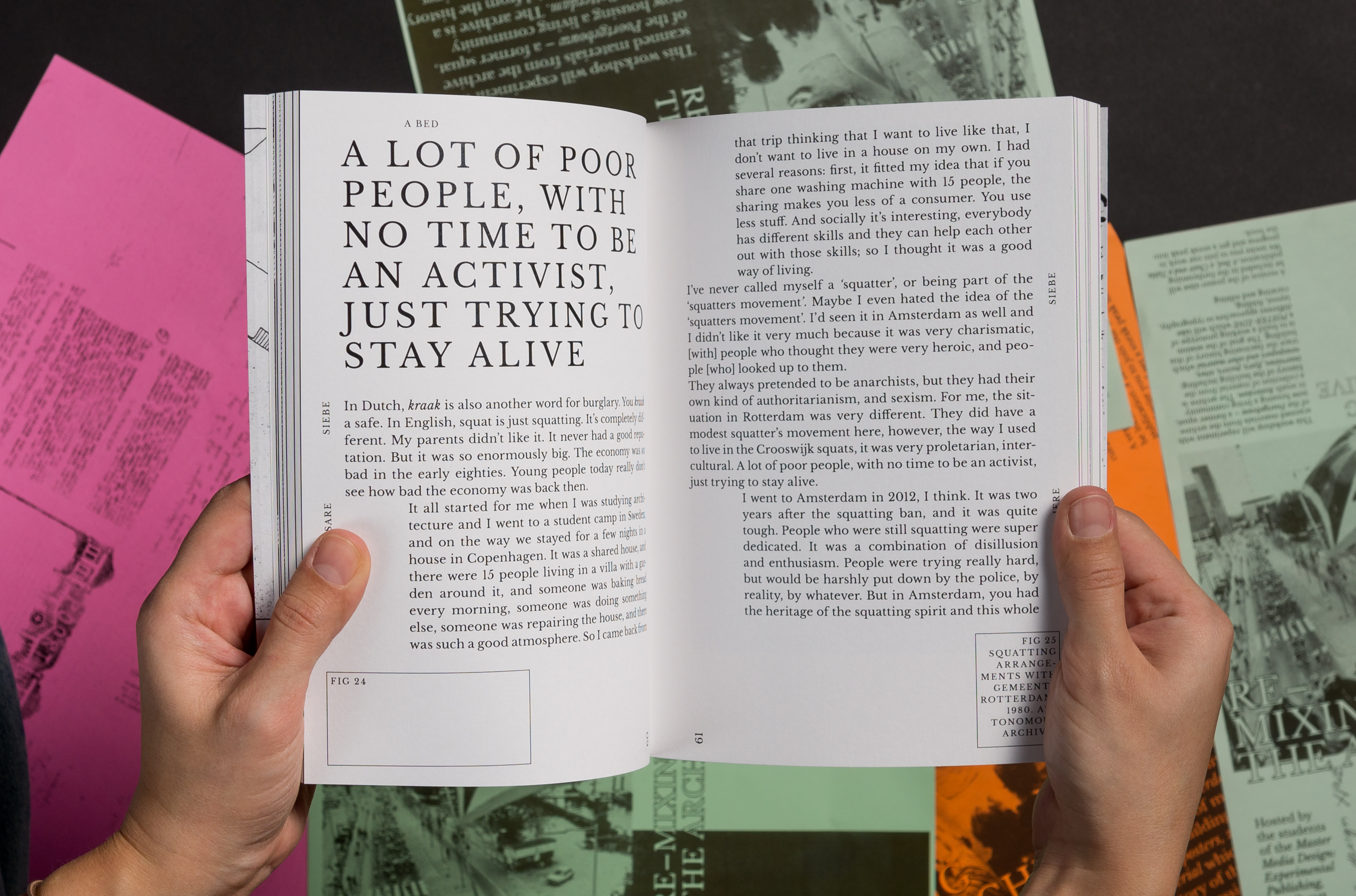User:Joca: Difference between revisions
No edit summary |
No edit summary |
||
| Line 13: | Line 13: | ||
'''Special Issue 6''' | '''Special Issue 6''' | ||
*[[Interfacing the law (2018)]] | *[[Interfacing the law (2018)]] | ||
*[[User:Joca/the-non-human-librarians | | *[[User:Joca/the-non-human-librarians | XPPL interface: The non-human librarians]] | ||
'''Reading, Writing & Research Methods''' | '''Reading, Writing & Research Methods''' | ||
Revision as of 16:13, 22 May 2018
Trimester 3
Special Issue 6
Reading, Writing & Research Methods

Trimester 2
During this trimester my main focus points for research were natural language processing using Python and libraries like NLTK, and the construction of the public image of the librarian. These led to my reader Who is the Librarian and the script Reading the Structure.
Next to that I dived into, among other things, optical character recognition using Tesseract, writing synopses and using them to share insights and write an essay, cybernetics and image generation using raw audio.
In comparison to the previous semester, my activities were more diverse. Next to writing and research, I also worked on the design of the results in digital and printed form.
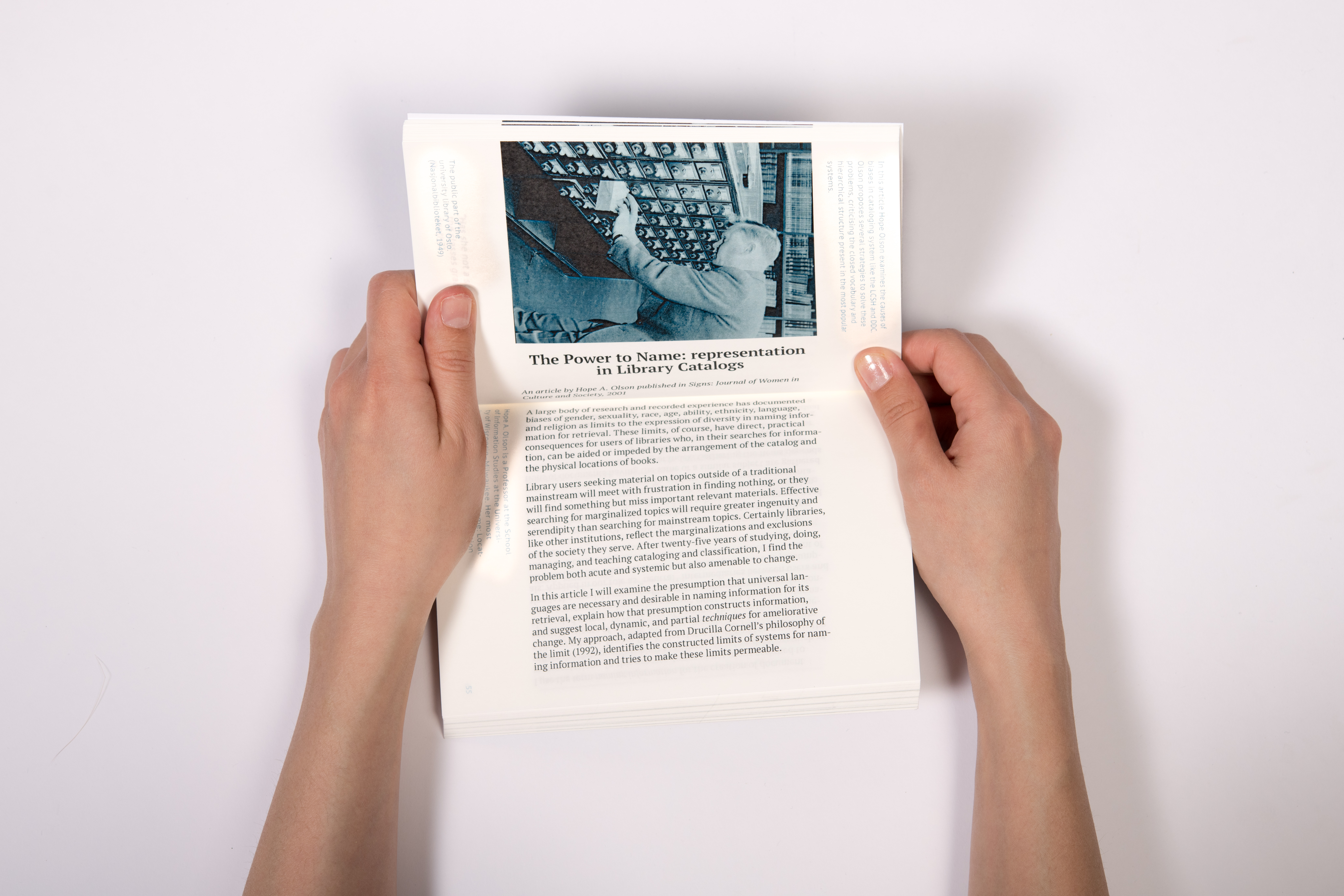
Special Issue #5: OuNuPo
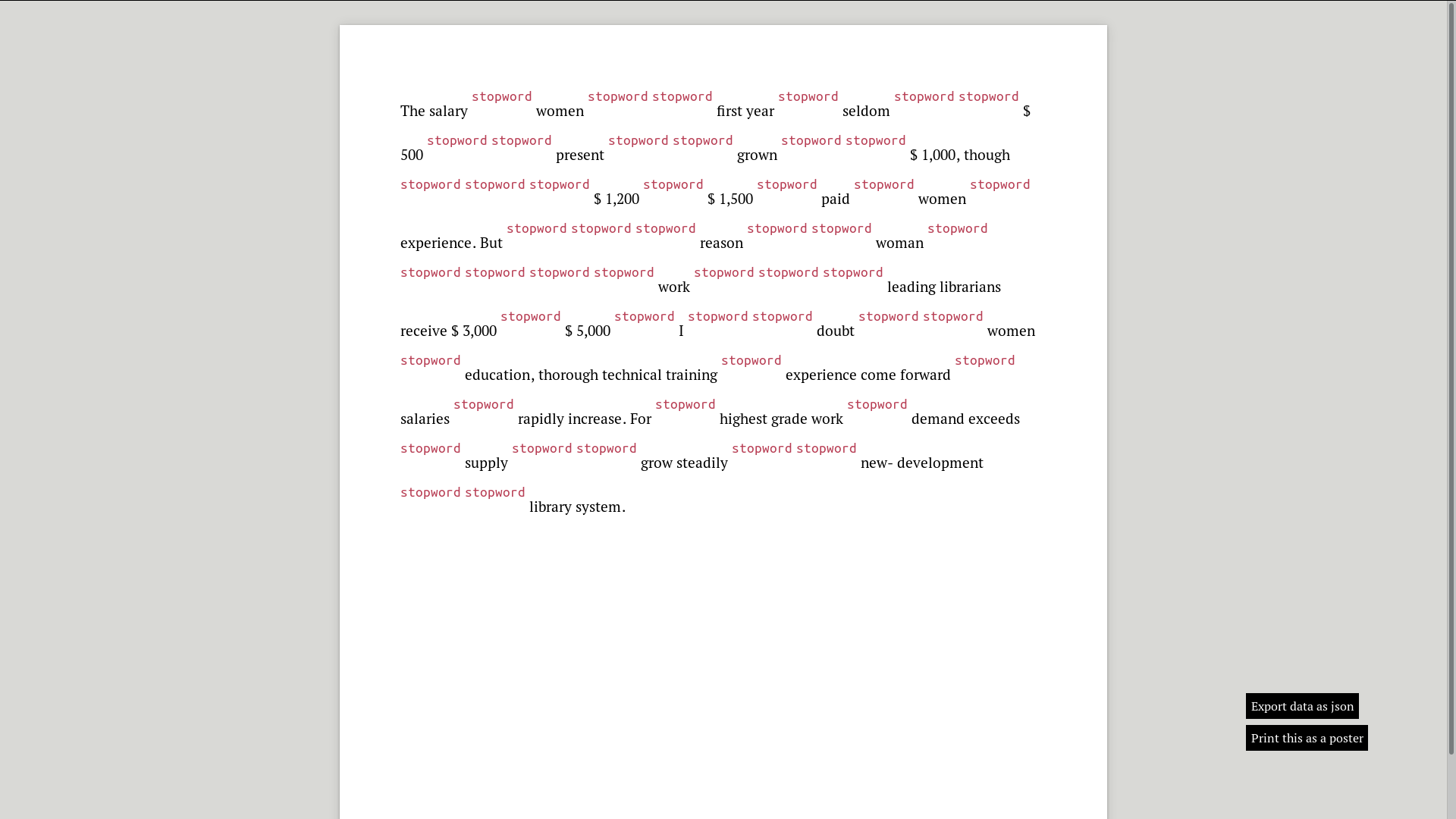
Prototyping
- Pipeline to preprocess scans for tesseract
- Python experiments
- Raw audio to bitmap
- Supervised learning algorithm
- Algolit: Word Embeddings
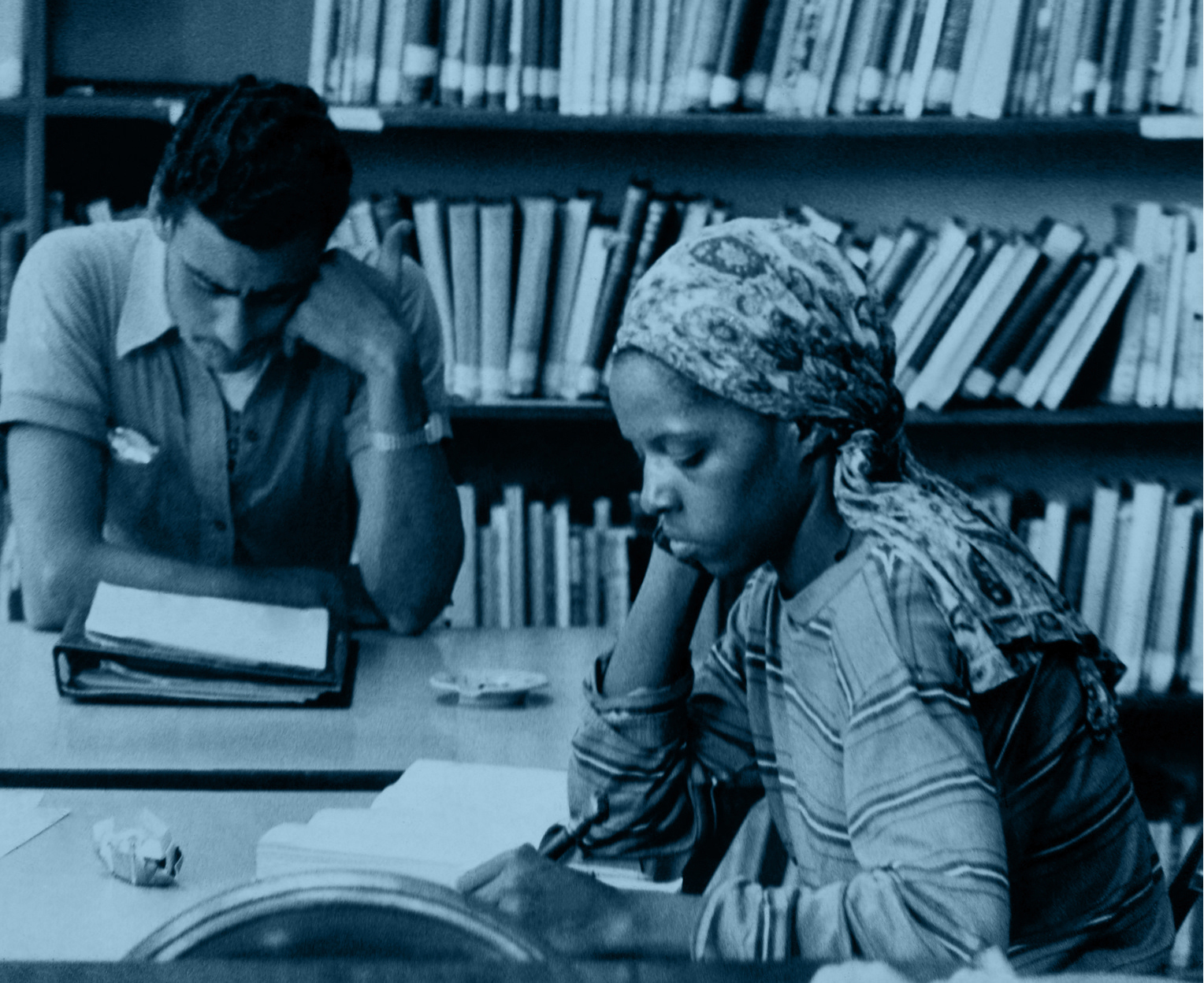
RW & RM
Synopses in order of writing them
- Printed English after Joyce, Shannon and Derrida
- Outstanding issues: gender, feminisms and librarianship.
- Women's Ways of Structuring Data
- Information Science: Not Just for Boys Anymore
- O profissional da informação no mundo do trabalho e as relações de gênero
- The Power to Name: Representation in Library Catalogs
Essay
Looking back at trimester 1
The past few months I got to know XPUB and Rotterdam a little better. I found out that the different parts of the course fit really well different aspects of my own practice: design of interactive products and experiences and writing & editing in the context of journalism and creative writing.
Some of the highlights for me were to be part of a full publication cycle in the context of print, from concept to distribution. Another important point was that the course encouraged me to start with making open source tools more explicitly part of my workflow.
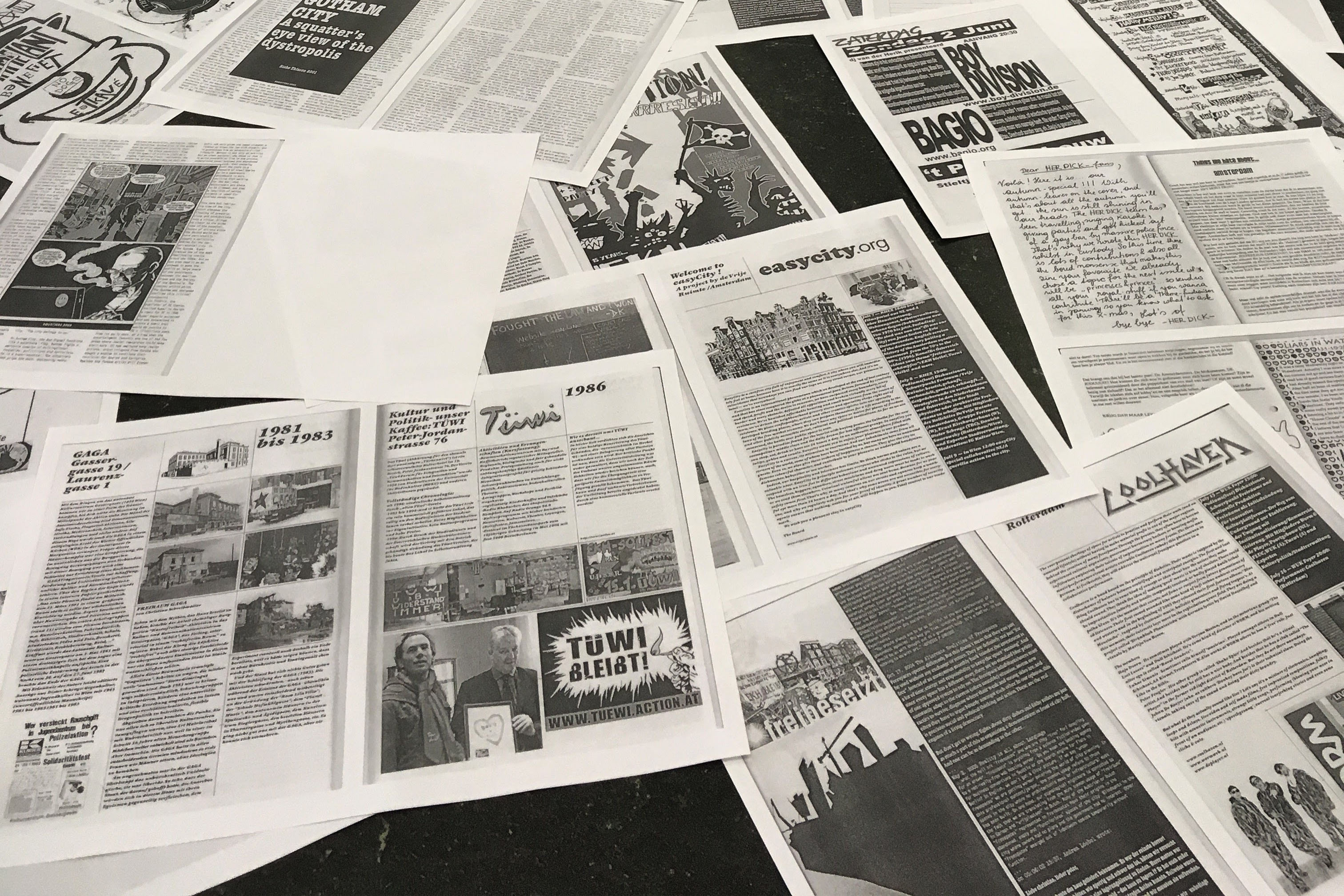
RW & RM
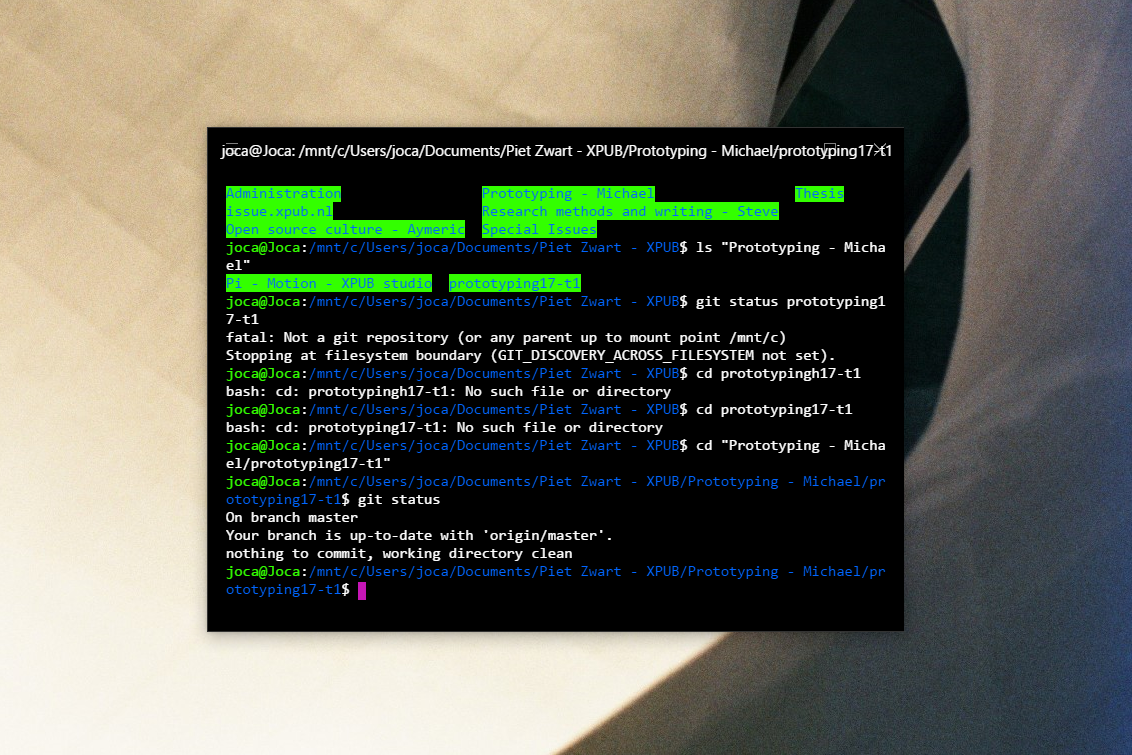
Prototyping
- What I did and learned
- Recipe: Ubuntu shell on Windows 10
- Recipe (in the making): Linux/Windows 10 dualboot

Self-directed research
- Exhibiting work at DDW & DXB design weeks -> How to communicate and design the process of making public?
- Taking inspiration from exhibition publications
- Learning to work with the Risograph
Next steps
I think that I am at the right place here at XPUB. I enjoyed the focus on interviewing and editing last trimester, but I think it is good to shift the focus a bit in the next special issue. On one hand, by having a tighter integration with the things I learned in prototyping. But also by doing some more writing and analysis, to exercise with writing with a more theoretical character as a preparation for the thesis.
Based on the topic of the next special issue and the plans for RW&RM, I think that the topic of bookscanning offers an excellent space to develop these aspects. At the moment I think about focusing on building the scanner and research on the culture of bookscanning.

